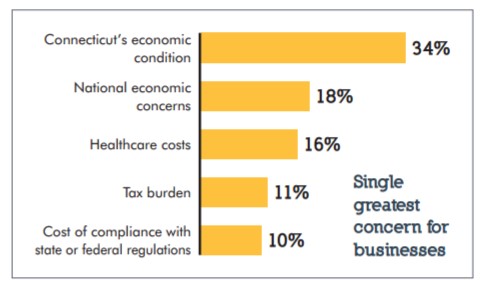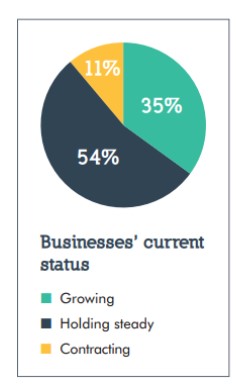CT is One of 8 States Launching Pilot Projects to Retain Workers with Disabilities
/Eight states - including Connecticut - have launched projects aiming to provide opportunities for people who experience occupational or non-occupational injuries or illnesses to remain in and return to the workforce. After a competitive selection process, the U.S. Department of Labor’s Office of Disability Employment Policy in partnership with DOL’s Employment and Training Administration and the Social Security Administration awarded eight states with funding for RETAIN Demonstration Projects.
Connecticut’s request was $2.1 million. Phase one of the project will be in the Capitol Region; the intention is to then expand to other regions of the state in phase two. Each state created a leadership team comprised of representatives from state health services, state workforce development, and other public and private stakeholders. The team will work to foster collaboration between health care providers and employers to assist injured or ill workers in remaining in the workforce.
Health care partner on the Connecticut pilot initiative is the University of Connecticut Health Center and the insurer is The Hartford. The state Department of Labor’s Office of Workforce Competitiveness is leading the team, along with representatives of Capital Workforce Partners, The Hartford, UConn Health, the state Department of Rehabilitation Services, and the CT Business Leadership network.
In addition to Connecticut, the states of California, Kansas, Kentucky, Minnesota, Ohio, Vermont and Washington received awards. While each has the same mission, the projects are adaptable to specific state needs. The goal of RETAIN, or Retaining Employment and Talent after Injury/Illness Network, Demonstration Projects is to test the impact of early intervention strategies that improve stay-at-work/return-to-work outcomes, according to the U.S. Department of Labor, as reported by the Council of State Governments (CSG).
Stay-at-work/return-to-work initiatives provide timely and effective supports and services that allow employees to remain in the workforce and avoid long-term unemployment. Keeping people engaged in the workplace benefits all stakeholders including the employee, employer and state, officials point out. States hope to reduce long-term work disability and the need for Social Security Disability Insurance through the projects.
The projects will be funded in two phases. The eight states mentioned above were funded for the 18-month Phase 1 pilot project. After Phase 1, a subset of the recipients will competitively apply for Phase 2 funding. Phase 2 will include a 30-month project implementation and a 12-month evaluation.
Providing supports and services for people who have acquired occupational or non-occupational injuries or illnesses strengthens their quality of life, allows businesses to prosper, and stimulates state economies, officials noted.




 Mallory Industries, Inc
Mallory Industries, Inc ency has always been perceived as a cam manufacturer. Components produced have been installed in life critical medical devices, numerous aircraft and various industrial equipment.
ency has always been perceived as a cam manufacturer. Components produced have been installed in life critical medical devices, numerous aircraft and various industrial equipment.
 When asked how Connecticut should address the shortage of skilled workers, 32% of businesses surveyed say the state should reduce the cost of living, 28% say the state should support trade schools, 20% say the state should support education overall, and 20% say there should be incentive for training programs.
When asked how Connecticut should address the shortage of skilled workers, 32% of businesses surveyed say the state should reduce the cost of living, 28% say the state should support trade schools, 20% say the state should support education overall, and 20% say there should be incentive for training programs.































